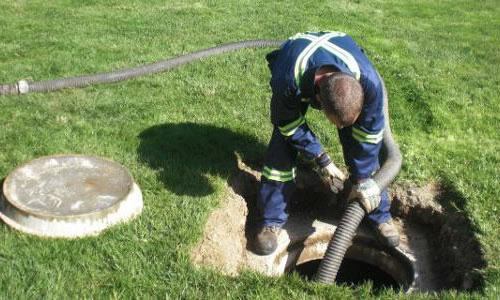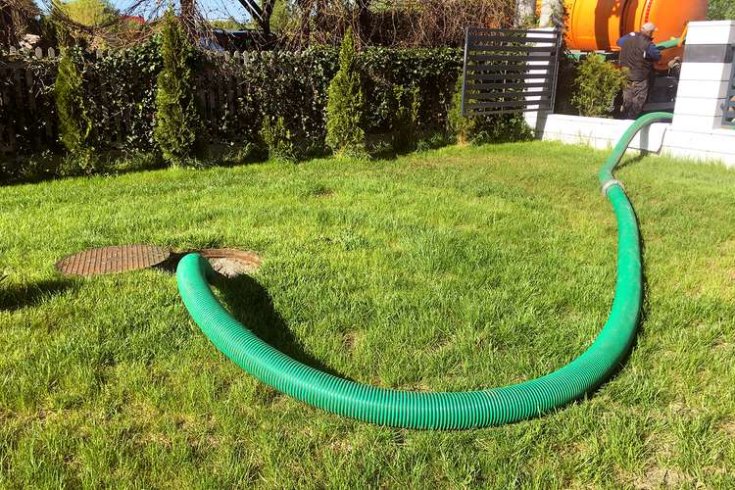
03
Emergencies involving septic systems can cause stress, be expensive, and create disruption. Understanding the proper approach to dealing with a septic emergency can help minimize additional harm and reduce costs. Listed are practical guidelines for handling septic system emergencies, such as when to request septic tank pumping, the significance of a trustworthy septic company, and the necessity of septic tank repair and cleaning.
Typical indicators of a septic emergency are sewage flowing back into your house, unpleasant smells by your drains, or a moist, soggy yard surrounding the septic system. If you observe any of these indications, act promptly to avoid extensive harm to your belongings. In emergencies, having the contact details of Charlotte Septic Pros on hand is crucial for prompt assistance.
When you see indicators of a septic problem, the initial step is to reduce water usage within your household. Refrain from using water-heavy appliances such as dishwashers and washing machines, and reduce the frequency of showering and toilet flushing. This could alleviate the strain on your septic system, potentially hindering the problem from getting worse.
Afterwards, find the septic tank and visually check the surroundings to ensure it is secure. Search for any noticeable indications of leaks, stagnant water, or potent smells. When you notice any of these signs, it could be a sign that you need septic tank repair. Encouraging frequent maintenance by a skilled technician can frequently help avoid costly repairs.
It is crucial to contact a professional septic company in the event of septic emergencies. Select a provider that offers emergency services to promptly address issues such as septic tank pumping to restore your system efficiently. While on the phone, explain the problem and any symptoms you have noticed, such as strange smells or water collecting near the septic system. This information assists in preparing for needed interventions, such as septic tank cleaning or alternative measures.
Septic tank pumping is a main solution for septic emergencies. Routine pumping is necessary to keep a septic system in good condition, but it becomes even more crucial in the event of an emergency. Pumping helps eliminate extra waste and water from your septic tank, easing the strain on the system and avoiding potential overflow. A properly timed pump can prevent sewage backups and avoid additional harm to your house and garden.
In extreme situations, your septic system may require more than just pumping. Septic tank repair is frequently needed for cracked tank, damaged pipes, or malfunctioning components. Septic experts will evaluate the damage and suggest the optimal solution. If your system is old or cannot be fixed, think about getting a septic tank installation. Setting up a new tank may require a substantial investment, but it is a lasting fix that guarantees the effective functioning of your septic system.
Dealing with a septic system crisis may be difficult, but being aware of what actions to take can make a significant impact. Identifying the signals, reaching out to Charlotte Septic Pros, and scheduling septic services are crucial measures for effectively handling the issue. Proper upkeep, which may involve septic tank installation, is crucial for avoiding potential crises and maintaining the durability of your septic system.

28
Why Is Sewage Backing Up into My Tub? When wastewater starts rising into your bathtub, it’s more than just unpleasant—it’s…
Read more
22
Can Bacteria Additives Eliminate the Need for Pumping? If you own a home with a septic system, you’ve probably seen…
Read more
12
A single slow drain in your home can feel like a minor inconvenience. Maybe the sink takes a little longer…
Read more
05
Are Slow Drains a Septic Issue or Just a Clog? Slow drains are one of those household problems that start…
Read more
02
What Septic Service Techs See That Homeowners Miss Most homeowners only think about their septic system when something goes wrong.…
Read more
21
Simple Habits That Protect Your Septic System A well-functioning septic system does its job quietly, but the moment something goes…
Read more
14
Pump Now or Pay Later: The Real Cost of Skipping Maintenance A properly functioning septic system is easy to forget…
Read more
11
Why Your Septic System Always Acts Up at the Worst Time Homeowners often feel that septic problems strike at the…
Read more
04
Early Warning Signs Your Septic Tank Needs Pumping For homeowners who rely on a septic system, routine maintenance is not…
Read more
29
Why Does My Septic System Smell Fine One Day and Terrible the Next? If you own a home with a…
Read more